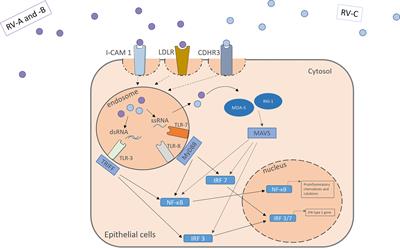EDITORIAL
Published on 18 Jan 2022
Editorial: Type I and Type III Interferon Immune Responses in Asthma

doi 10.3389/fimmu.2021.826363
- 2,190 views
- 3 citations
11k
Total downloads
34k
Total views and downloads
EDITORIAL
Published on 18 Jan 2022

MINI REVIEW
Published on 03 Dec 2021

REVIEW
Published on 10 Nov 2021

ORIGINAL RESEARCH
Published on 18 Oct 2021

REVIEW
Published on 06 Oct 2021
